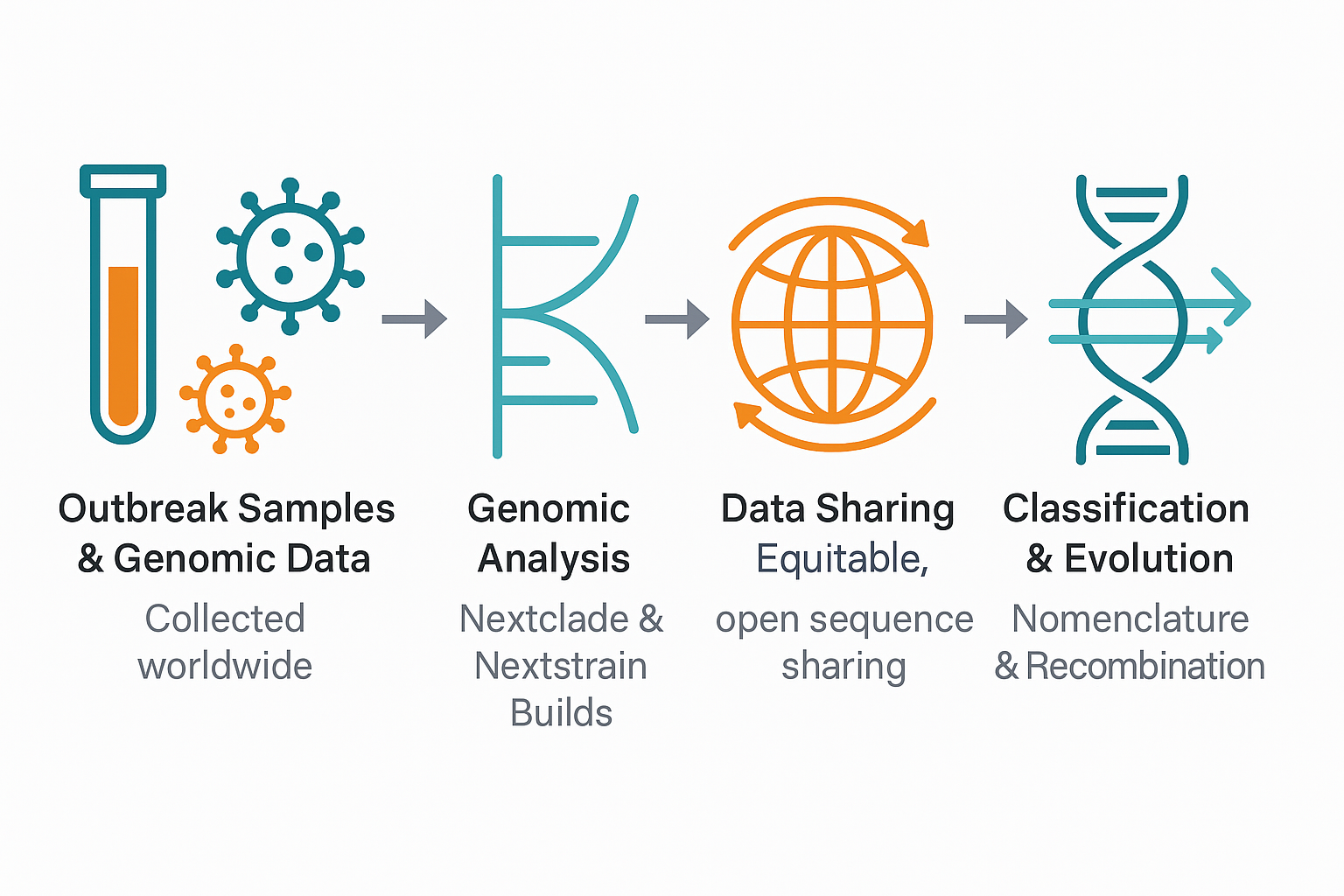 Enterovirus Epidemiology & Evolution
Enterovirus Epidemiology & Evolution

Our work on Enteroviruses aims to advance our understanding of their evolution, spread, and impact on public health, with a particular focus on Enterovirus D68 (EV-D68). Supported by Dr Hodcroft’s SNSF Starting Grant, we are applying genomic and phylogenetic methods to track viral dynamics over time and space, shedding light on the drivers of outbreaks and the patterns of viral persistence. This includes exploring how lineages circulate globally, where genetic bottlenecks arise, and how immune pressure may shape viral diversity. A central component of this effort is building practical tools and frameworks to support real-time monitoring and long-term surveillance of these viruses.
To support the broader research and public health community, we are integrating Enterovirus data into key open-source tools and platforms. We are contributing to establishing curated Enterovirus datasets for Nextclade, enabling easy clade assignment and quality control for new sequences. In parallel, we are currently working on incorporating Enteroviruses into Pathoplexus, a novel platform for transparent, equitable viral data sharing and analysis. In addition, our team is also interested in contributing to nomenclature updates for EV-D68 and other Enteroviruses, helping to ensure clear communication and consistent tracking of lineages. Finally, recognizing the importance of genetic recombination in Enterovirus evolution, we are investigating recombination patterns and their implications for viral classification, surveillance, and vaccine development.